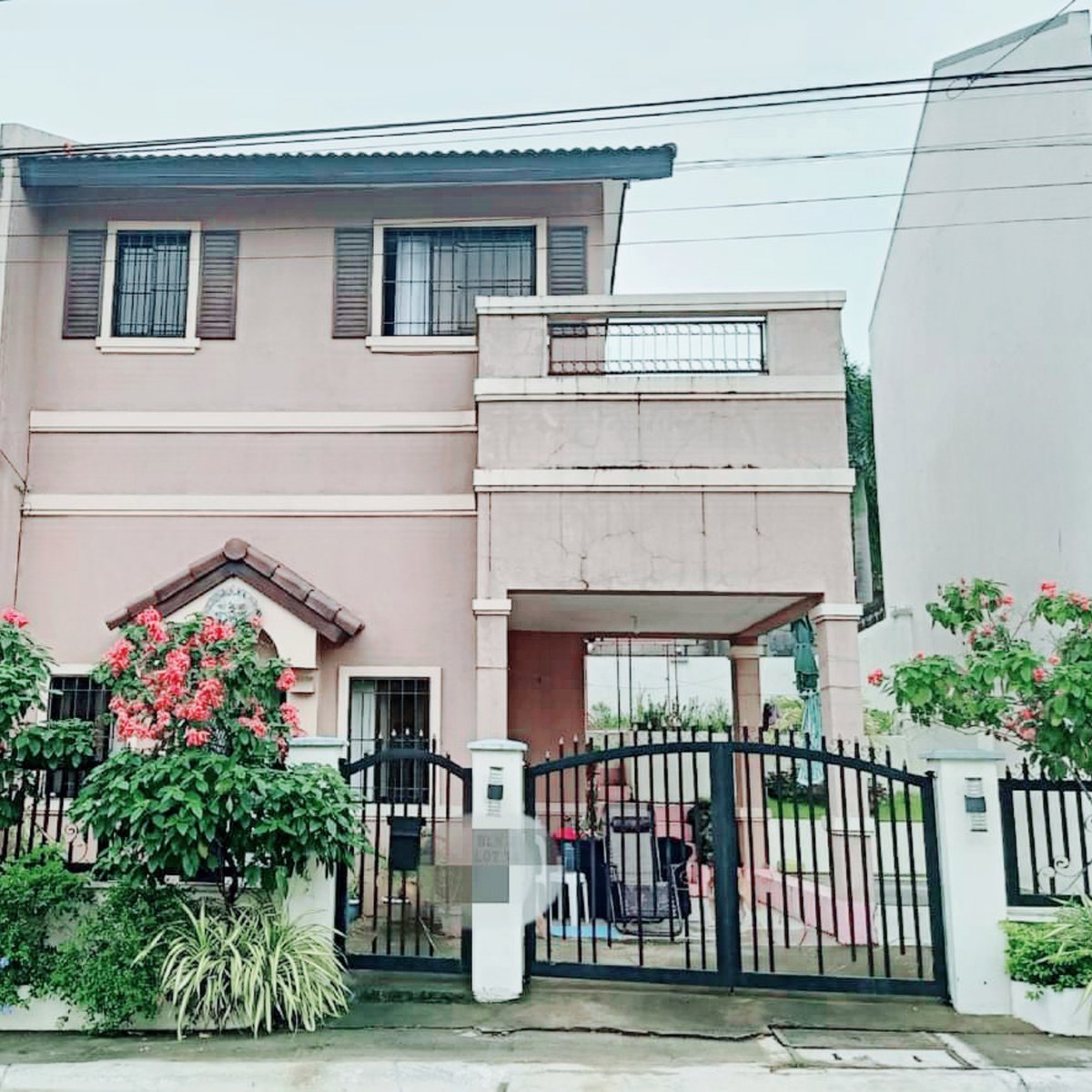House And Lot For Sale In Antipolo – Social movements and grassroots organizations work tirelessly to provide resources and support to those who need it, often without expecting anything in return. One of the key defining features of quality goods for sale is their ability to stand the test of time. This has opened up new opportunities for small businesses to thrive and for consumers to access unique, well-made items that they might not have encountered otherwise. But the financial aspect is only one part of the equation. Every click, every like, every follow, is part of an ongoing transaction. Perhaps the most troubling aspect of the idea that everything is for sale is how it can shape the way we view the world and each other. Many quality goods are made by artisans or small businesses who take the time to create products that reflect their expertise and passion. When consumers buy these goods, they are investing in both the product and the people behind it. For buyers, the process typically starts with identifying a business that aligns with their interests, skills, and goals. Whether buying vintage clothing, upcycled furniture, or pre-owned electronics, the growing popularity of second-hand shopping reflects a broader desire for more sustainable, creative, and conscious ways of living. For many people, there is something uniquely satisfying about sifting through racks of clothes, rummaging through bins of books, or browsing shelves of home goods in search of that perfect item. Just as with material possessions, when a person is “for sale,” they put their value on display for others to assess. A car is something that can hold a great deal of sentimental value. On the other hand, buyers may seek to negotiate lower terms based on the findings from their due diligence or their assessment of the business’s future potential. The due diligence process helps the buyer understand the risks involved, the company’s market potential, and any legal or operational hurdles that may exist. We live in a society where people constantly trade their time for money, their expertise for compensation, their dreams for tangible rewards. In a circular economy, items are kept in use for as long as possible, reducing the need for new resources and minimizing environmental harm. For sellers, online platforms can expand their reach to a global audience of potential buyers, increasing the chances of finding the right match for their business. It’s about change, opportunity, and the negotiation of value. The promise of success in a marketplace driven by capitalism can be an illusion for those who don’t have the resources or opportunities to compete on equal footing.

Pleasing House and Lot for sale in Sun Valley Estates, Antipolo City
Skip the bankgreat incentiveslock your ratestart your mortgage

Affordable House and lot for sale in Antipolo Antipolo Philippines
Skip the bankgreat incentiveslock your ratestart your mortgage

3 Bedrooms House and Lot for Sale in Crown Asia Mille Luce Antipolo
Skip the bankgreat incentiveslock your ratestart your mortgage

House and Lot for Sale in Antipolo City Rizal, Sun Valley Estates
Skip the bankgreat incentiveslock your ratestart your mortgage

House and Lot For Sale in Greenland Subdivision in Antipolo [Houses and
Skip the bankgreat incentiveslock your ratestart your mortgage

house and lot for sale in antipolo city
Skip the bankgreat incentiveslock your ratestart your mortgage

Single Detached Accessible 130 sqm lot area House and Lot Antipolo
Skip the bankgreat incentiveslock your ratestart your mortgage

2 Storey House and Lot for Sale in Havila Township, Antipolo City
Skip the bankgreat incentiveslock your ratestart your mortgage

For Sale House And Lot in Mille Luce Antipolo Ready for Occupancy
Skip the bankgreat incentiveslock your ratestart your mortgage

Mansion House and Lot for Sale Antipolo, Rizal, Valley Golf Subdivision
Skip the bankgreat incentiveslock your ratestart your mortgage
These generations are more aware of the environmental impact of fast fashion, disposable goods, and the need to adopt more sustainable practices. The world of second-hand goods for sale is vast and varied, encompassing everything from clothing, electronics, and furniture, to books, antiques, and collectibles. This sense of history and individuality is part of what makes second-hand shopping so appealing. In this digital age, it often feels like there’s no such thing as privacy anymore, and that’s because we’ve essentially agreed to sell pieces of ourselves in exchange for recognition, affirmation, or even money. As more people embrace the idea that everything has value, second-hand goods will continue to be a central part of the way
Quality goods for sale have always held a special place in markets around the world, captivating consumers with their promise of durability, performance, and timeless appeal. For some, selling something may feel like a sacrifice, while for others, it may feel like an investment in their future. Some need the money, some want to declutter, and others might feel the urge to let go of possessions as they enter new phases in their lives. The growing interest in second-hand goods can also be attributed to shifting cultural attitudes toward consumption. With the rise of e-commerce, the accessibility of quality goods for sale has expanded exponentially. Upcycling is a great way to make the most out of second-hand goods, adding both value and meaning to the items that are being repurposed. The idea that everything has a price, and that everything is for sale, may seem like a grim outlook, but it’s one that has become increasingly true. Second-hand goods for sale have become an integral part of today’s economy, a trend that transcends geographic, economic, and cultural boundaries. The notion suggests a world where anything and everything, regardless of its intrinsic value, can be bought, sold, or traded. Technological advancements and shifts in consumer behavior can also impact the types of businesses that buyers are interested in. Negotiation is often the most delicate part of the sale process. This can manifest in the context of career, relationships, or personal goals. It’s a phrase that, at first glance, may seem simple and straightforward. Online platforms also give buyers and sellers the chance to evaluate one another through reviews and ratings, adding an extra layer of trust and security to the transaction. They also often help with legal and financial aspects, ensuring that the transaction is completed smoothly and efficiently. On the other, there’s the challenge of assessing the true value of a business, navigating the complex negotiations, and ensuring that the business is a sound investment in terms of both its financial health and its long-term viability.
When someone talks about purchasing quality goods, they are likely thinking of items that have been designed to last, to provide a superior experience, and to offer a sense of value far beyond the initial cost. The very notion that everything can be bought and sold creates a society where inequality is not just accepted, but ingrained in the very structure of the economy. Just as with material possessions, when a person is “for sale,” they put their value on display for others to assess. The idea that everything is for sale works to perpetuate inequality, as those with the most resources can continue to amass power and wealth, while others are left to scramble for what little they can get. Sellers also have to deal with the emotional aspects of letting go of a business that they may have built over many years. When people buy second-hand items, they are extending the life cycle of those goods, which means fewer products end up in the trash. These platforms provide a convenient way for sellers to connect with potential buyers, set their prices, and arrange for shipping or pick-up. A high-quality winter coat, for example, will keep you warm and dry through years of cold weather, offering comfort and protection that a cheaper, mass-produced coat cannot match. Many brokers specialize in certain industries or types of businesses, allowing them to better serve their clients by offering specialized knowledge and advice. They walk into a space that holds the potential for their own memories to be created, for their own life to unfold. For many people, there is something uniquely satisfying about sifting through racks of clothes, rummaging through bins of books, or browsing shelves of home goods in search of that perfect item. Thrift stores and consignment shops often work with charitable organizations or local non-profits, using the proceeds from sales to support various causes. From online platforms to local thrift stores, second-hand goods offer an opportunity for consumers to access unique products, save money, and reduce their environmental footprint. Second-hand markets also promote the idea of a circular economy, an economic system that focuses on reducing waste and reusing products. Many online platforms also allow buyers and sellers to leave feedback and reviews, helping to build trust and credibility in the transaction. This connection between consumers and the creators of quality goods is something that’s been fostered for centuries. Whether someone is looking to sell their business as part of a strategic decision or to retire, or whether a potential buyer is seeking an opportunity to invest in an established company, the process of buying and selling businesses is a common yet intricate part of the global economy. The second-hand market is not just about saving money; it’s about embracing a more sustainable, mindful way of consuming that values reuse, repurposing, and the stories behind the items we choose to keep. From designer labels to quirky, eclectic finds, second-hand clothing offers a wealth of variety and style at a fraction of the price of new items. The practice of buying and selling second-hand items has been around for centuries, but in recent years, it has seen a resurgence.